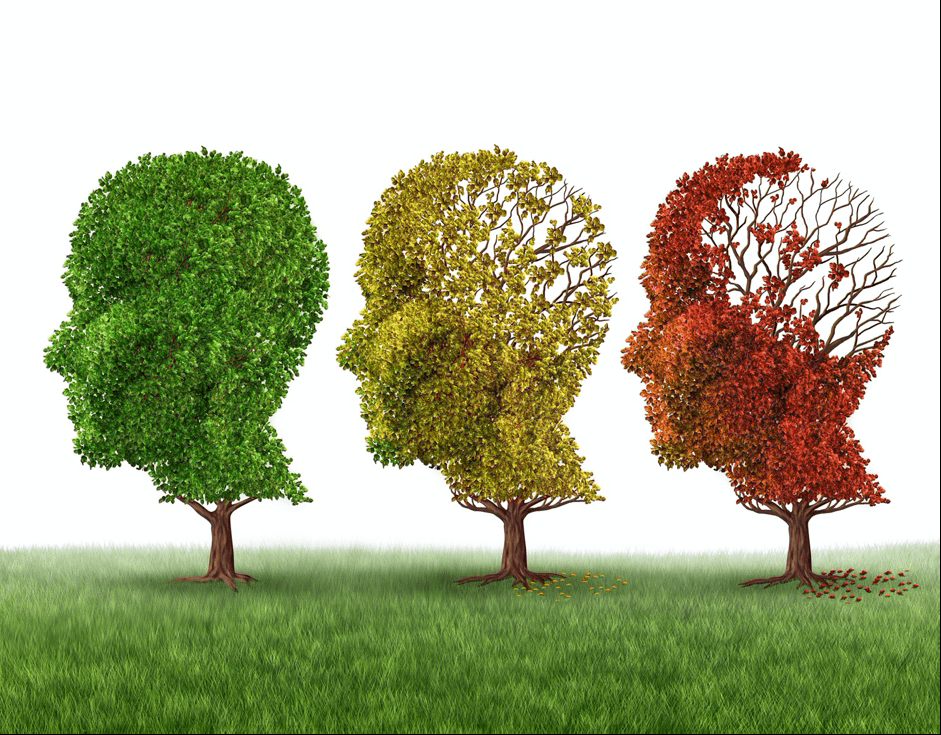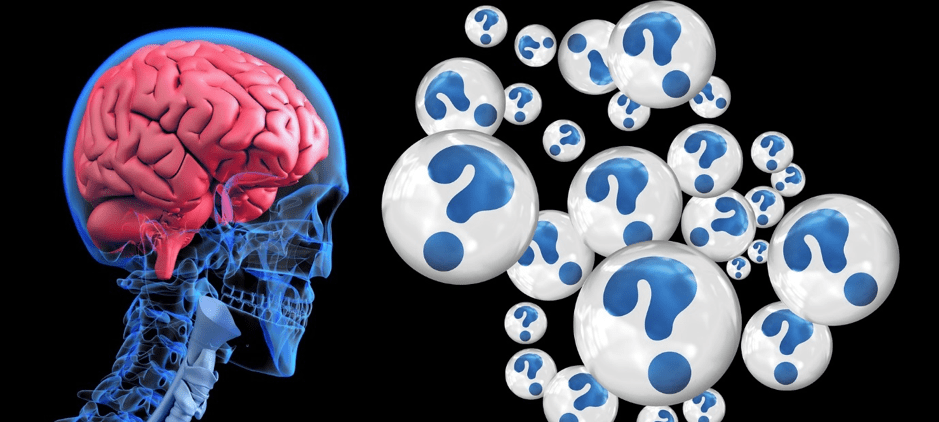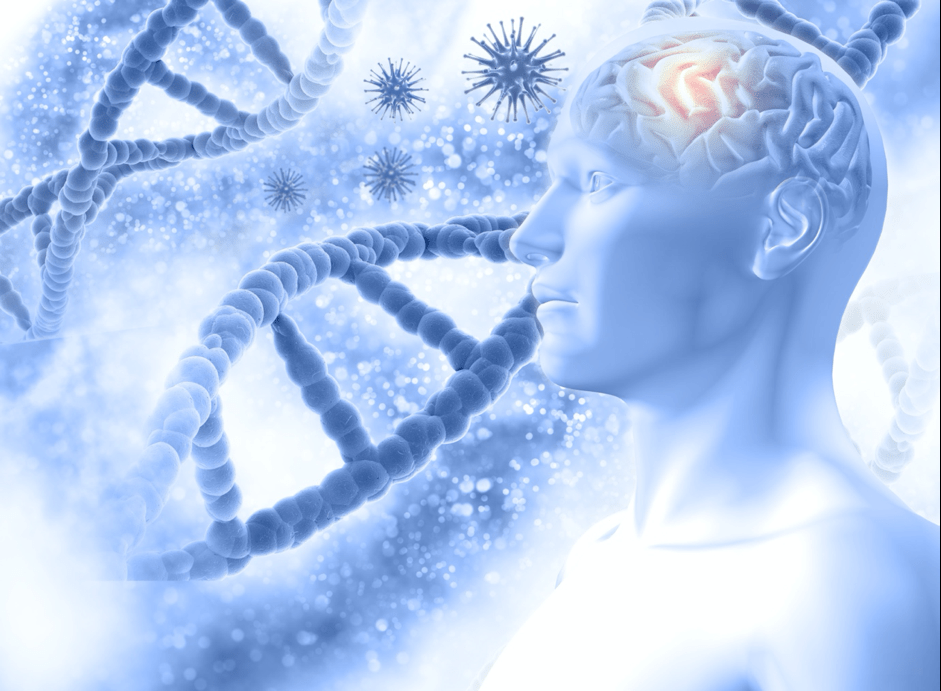How many types of dementia exist?

It is thought that there are over several 100 types of dementias. However, some forms of dementias are more common than others. All types of dementias get progressively worse over time. Depending on areas of the brain affected, some people classify dementias as cortical and sub cortical, this really means on the surface and deep inside the brain.
In cortical dementias, where it is affected over the surface of the brain, forgetfulness and memory loss are more of an issue. In sub cortical dementias, where it is deep inside the brain, personality change may be more common.
What are the main types of dementia?

ALZHEIMER’S DEMENTIA
VASCULAR (multi infarct dementia) – due to blood supply problems to the brain
LEWY BODY DEMENTIA – due to special protein called ‘Lewy Body’
PARKINSON’S DISEASE DEMENTIA – occurs in patients with Parkinson Disease (a neurological disorder)
FRONTO TEMPORAL DEMENTIA – when dementia affects only the front and sides of the brain
What is the most common type of dementia?

The most common type of dementia is Alzheimer’s type dementia which accounts for up to 70% of all dementias reported.
What are the rare types of dementia?
PROGRESSIVE SUPRANUCLEAR PALSY
CHRONIC TRAUMATIC ENCEPHALOPATHY
CREUTZFELDT – JAKOB DISEASE
CORTICOBASAL SYNDROME
HUNTINGTON’S DISEASE
What is the rarest type of dementia?
The rarest type of dementia is thought to be Creutzfeldt Jacob disease, which is thought to affect only 1-2 people per million a year.
What are the symptoms of Alzheimer’s type dementia?

Symptoms of Alzheimer’s dementia include difficulty in remembering recent events and learning new things. There could be confusion particularly about the day, date or place they are in. They may have difficulties in planning, judgement and processing information.
There could be other symptoms like losing control over emotions and hence being irritable or labile and getting more isolated. They could also have changes in social behaviours and could get more disinhibited or aggressive.
What are the symptoms of Vascular or multi infarct type of dementia?
Usually in vascular or multi infarct dementia which is usually caused by narrowing of blood tube that supply nourishment to the brain and death to the brain cells and tissues. There is a history of hypertension and there could be focal neurological symptoms such as unsteady gait, weakness of limbs etc.
What are the symptoms of Lewy Body type Dementia?

The symptoms of Lewy Body dementia are mainly because of the presence of Lewy Bodies in the brain which are protein deposits. In Lewy Body dementia, the memory loss is not a lot. On the other hand, problems with judgement, planning, altered consciousness, altered mood may be present. There may be hallucinations in the visual mode (seeing things that are not there). Additionally, there may be changes in movement and muscle related issues which may be signs of Parkinsonism. This may be being stiff, unable to take big steps, loss of co-ordination, tremors, problems with balance when standing, difficulty in swallowing etc.
It is also characterized by sleep disturbances, inability to sleep, feeling restless during night time is common. Being depressed, anxious, suspicious are all common.
How to know the difference between dementia in Parkinson’s disease and Lewy Body Type dementia?

Both dementia in Parkinson’s disease and Lewy Body Dementia have similar symptoms both motor (body) symptoms and cognitive (brain) symptoms.
However, in Parkinson’s dementia the motor symptoms far surpass the other symptoms by at least a year. In Lewy Body Dementia however both occur at the same time.
What are the symptoms of Fronto temporal dementia?

Frontal lobe is the front part of the brain and temporal lobes are on either side. Frontal lobes are involved in several functions including voluntary movement, personality, memories and attention. Temporal lobes are involved in memory, language, emotions and sensory input.
People with fronto temporal dementia may get behaviour affected, personality changes, language ability changes or difficulties in thinking and judgement.
What is dementia in Huntington’s disease?
This form of dementia is an inherited kind and runs in families. It starts with involuntary movements, depression and twitches and poor co-ordination.
What is Creutzfeldt Jacob disease?

This is a rare form of dementia and occurs one in a million cases. It occurs sporadically most of the time. Memory and mood changes can occur early. There is clumsiness and feeling of confusion, unsteady gait, and slurred speech.
Most people affected by CJD usually die within six months of start of their symptoms.
What dementia occurs when people drink excessively for a long period of time?

When people drink excessively and for prolonged periods of time have symptoms of memory decline due to deficiency of Vitamin B 1 also known as thiamine. This is sometimes known as Wernicke- Korsakoff syndrome. Wernicke’s encephalopathy is acute and can cause confusion, loss of muscle co ordination and some abnormal eye movements.
Whereas Korsakoff syndrome develops gradually and is characterised by memory loss, hallucinations and trying to make up stories for filling gaps of memories (known as confabulation). This type of memory problem due to Vitamin B 1 deficiency can occur in other conditions which cause a deficiency of Vitamin B 1 as well. It occurs in 1 in 8 people who drink alcohol heavily.
What type of dementia occurs in young people?

Most of the time dementia occurs in people over the age of 65 and the risk of getting dementia increases with age. When dementia occurs in people younger than 65 years of age, it is known as young onset dementia and it is usually a rarer form of dementia which affects the younger age group. It can also be more inherited than the other forms of dementias.
What type of dementia occurs in people with learning disabilities?

People with learning disabilities, especially people with Down’s syndrome have an increased risk of developing brain changes of Alzheimer’s dementia much younger such as by their 40 s. The reason for this is thought to be the extra chromosome 21 that people with Down’s syndrome carry.
Can you have a mix of different type of dementias?

Yes, there can be a combination of dementias. Usually Alzheimer’s disease and vascular dementia presents together as mixed dementias.
Which type of dementia has the best outcome?

Dementia outcome and prognosis varies a lot. However, it is thought that from time of diagnosis a person on an average life for 7 to 10 years. Some forms of dementia such as Alzheimer’s and multi infarct dementia have longer life outcomes compared to the rarer forms like CJD and Fronto temporal dementia.
Which type of dementia has the worst outcome?
A rare form of dementia known as Creutzfeldt Jacob disease which occurs in one in a million people has a bad prognosis where 70 % of people die within one year.
Which type of dementia can be prevented?

All types of dementias cannot be prevented. However, the common types of Dementias such as Alzheimer’s and multi infarct can be prevented to some extent by maintaining a healthy lifestyle, weight and controlling risk factors like diabetes and hypertension.
Which type of dementia causes sleep problems?

People with all types of dementia may experience difficulty in sleeping at nights and have daytime drowsiness. Lewy Body dementia can cause REM (Rapid Eye Movement) sleep disturbances which can be a problem for patients and their carers.
What is rapidly progressive dementia?

Rapidly progressive dementias (RPDs) are dementias that develop quickly over the course of weeks to months. It is important to pick these dementias early as some of the causes can be treated. Infections, CJD and cancer are some causes of this type of rapidly progressive form of dementia.
What is the most aggressive form of dementia?
Rarer forms of dementia can be galloping and have a shorter life expectancy.
In which type of dementia is life expectancy good?

Life expectancy is usually 7 to 10 years following diagnosis. However, it depends very much on individual, pre-existing health conditions etc.
Which type of dementia can be reversed?
Dementia that arises secondary to infections, toxins and metabolic conditions can sometimes be reversed.









